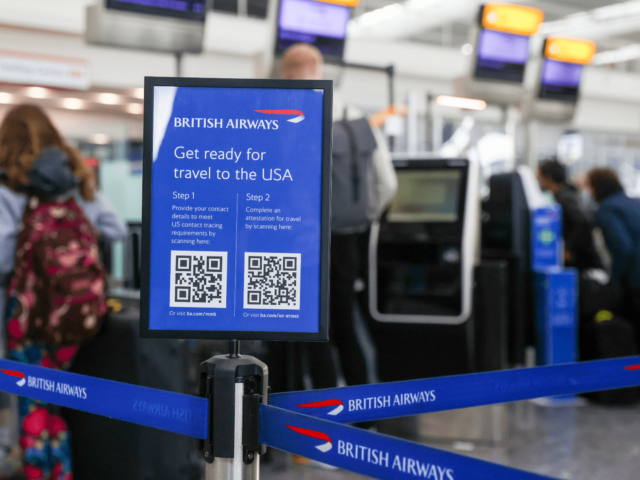The United Kingdom will introduce a “digital border” system using the “latest technologies” to allow some people to go through an automated screening process without needing to speak with border officials.
Conveniently timed with the final round of parliamentary voting in the Conservative leadership contest to replace Boris Johnson as Prime Minister, Home Secretary Priti Patel announced new plans for a “digital border” for the United Kingdom.
The Home Office said that it will begin testing the system next year, without giving details as to how exactly they will electronically screen those who wish to come into the country.
“This new, digital system will mean we will understand more about the people coming to the UK before they travel, helping to improve security as well as queue times at the border,” the government claimed.
Commenting on the plan, Priti Patel said: “As Home Secretary I have been focused of taking back control of our immigration system through my New Plan for Immigration.
“This includes ensuring we have a border that is fit for the 21st century which allows travellers to get a visa and pass through the border easily, while maintaining national security.
“I am also committed to ensuring our fantastic Border Force are given access to the most up to date automation technologies so they can use their specialised skills on protecting our border from those who seek to harm the UK.”
Though details are currently scant on what a “digital border” would look like, the proposal seems remicscent of policies advocated by former British Prime Minister Tony Blair, whose think tank has argued for the implementation of a “digital identity verification” system for all Britons to allegedly tackle the issue of illegal immigration.
Earlier this month, a report from the Tony Blair Institute for Global Change said: “The UK is an attractive destination partly because parts of our labour market are under-regulated, which means it is easier to work in the informal economy (and therefore disappear off the radar) than in countries where you must prove your right to work and reside.”
Therefore it called for the formation of a “system of digital identification for all citizens, ensuring that those who want to work and access benefits will need to be able to demonstrate they have a legal right to reside.”
Blair had attempted to usher in a similar system, however, the Conservative-led coalition government under former PM David Cameron scrapped the plans in 2010 following a massive backlash over human rights concerns.
The UK is not alone in attempting to digitise its borders, with the European Union announcing last year that as a part of its post-pandemic “transition” the EU Commission would seek to introduce a bloc-wide “digital identity” app that would contain passport, driving licence, credit card and other personal information.
Follow Kurt Zindulka on Twitter here @KurtZindulka

COMMENTS
Please let us know if you're having issues with commenting.